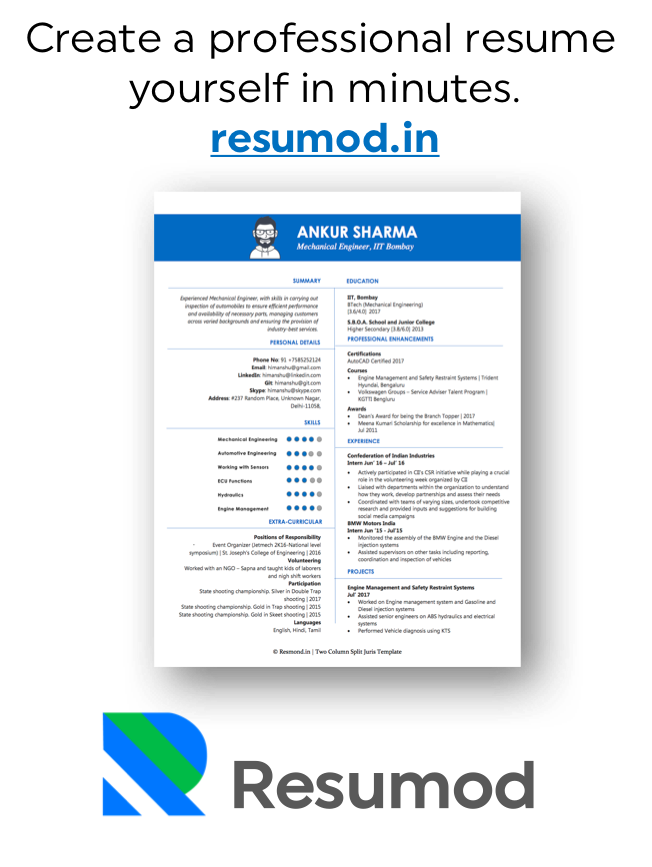Banks are indispensable to the national as well as internationally economy. Being the central part of the financial services industry, banks are among the leading employers within the financial field. Jobs can be found in Commercial and Retail Banking, Community Banking, Rural or Cooperative Banking, Credit Unions and Investment Banking.
Indian Banking Market
The Indian banking system consists of 27 public sector banks, 21 private sector banks, 49 foreign banks, 56 regional rural banks, 1,562 urban cooperative banks and 94,384 rural cooperative banks, in addition to cooperative credit institutions (FY17 data, IBEF report). With the total credit reaching USD 1.3 Trillion by Q3 FY19, India’s retail credit market is the fourth largest in emerging economies#. And with digitisation taking banks to citizens in every nook and corner, the demand for efficient bankers is only going to increase in the coming years.
Job profiles offered by Banks
- Bank Teller
- Probationary Officer (PO)/Management Trainee (MT)
- Personal Banker
- Loan Officer
- Bank Manager
- Relationship Manager
- Investment Banker
- Investment Analyst
- Credit Analyst
- Portfolio or Fund Manager
- Financial Reporting Analyst
- Commercial Loan Manager
- Corporate Business Sales
- Pension Manager
- Fraud Specialist
- Treasury Manager
Applying for the right job
Before you start applying for Banking jobs, you need to carefully scrutinise which of these jobs is meant for you. Try and research what each of these profiles mean and what they entail in terms of day to day responsibilities. Once done, it is time to get down to creating your resume.
Preparing your resume
Most banking profiles require a certain basic educational qualification. For example, you can be just a graduate to apply for Teller or Sales jobs, but you need to be an MBA for applying to jobs as a Relationship Manager or Treasury Manager. Investment Banking and Analyst jobs also require an MBA but a graduate degree from a Tier 1 college also does the job. So start the resume with your Educational Qualification. If you have scored good marks, mention those along with the degree.
HRs hiring for banking profiles are most often flooded with applications. So a lot of them use ATS or Applicant Tracking Systems to screen resumes. This system is nothing but a software that can parse (read) your resume and determine if it qualifies for the job applied to by matching keywords. To bypass an ATS, your resume needs to have the right keywords that an HR is searching for. Some keywords that you might want to include in your resume (in projects or KRAs) could be:
- Financial Planning
- Fixed Asset Accounting
- Fraud and Risk Analysis
- IFRS
- Financial Projection
- General Ledger
- Trial Balance
- Financial Statements Analysis
- Cash Flow Management
- Business Valuations
- Credit Assessment
- Due Diligence
- Regulatory Accounting
- Budgeting and Financial Reporting
- Accurate Transaction Processing
- Bank Reconciliations
- Expense Analysis
- Tax Reporting; Tax Planning
- Portfolio Management
- Fund Management
- Auditing and Compliance
- Operating or Working Capital Management
- Budget Management
- Mergers and Acquisitions
- Relationship Banking
- Financial Management
- Banking databases, software, and programs; SAP / ERP
Remember to spell out acronyms in case an ATS is programmed to look for the full term.
Don’t miss out role specific keywords
E.g.: For Investment Bankers: mergers and acquisitions (M&A), business transformation, integration, financial modelling, research, deals, deal flow, deal making and negotiating
For Relationship Managers: client relationship management, lead generation, business development, portfolio management, consumer banking, cross selling, etc.
Give an edge to your resume by
- Adding a separate special accomplishments section to showcase relevant accomplishments in the banking domain
- Numbers, percentages, and other metrics make your accomplishments more remarkable in the minds of hiring managers
- Highlight any banking sector specific certifications that you might have acquired
Additional Tips
- Always Use Chronological format; Use functional format only if you have had large gaps in employment or who have recently changed careers. That’s because this format focuses less on job and education history and more on core skills and accomplishments
- Add your certifications:
Be sure to use the industry standard terminology. Banking certifications such as Certified Treasury Professional (CTP), or Certified Credit Officer (CCO) are all familiar to banking hiring managers. In the business banking field, your certification in Trade Finance, Foreign Exchange or Digital Banking can also draw positive attention from a hiring manager.
- Speak about accomplishments rather than general duties; highlight your efficiencies
- Use PAR (Problem, Action, Result) format in job descriptions, qualification highlights to stand out.
Action Words
When writing job descriptions, or even project KRAs use action words to begin sentences. Words like achieved, created, audited, prepared, delivered, analysed, researched, led, forecasted, coordinated, monitored, developed, managed, handled, etc. are called action words because they denote actions or accomplishments.
Do not use phrases like ‘creative’, ‘virtuoso’, ‘improved’ or ‘advanced’, passionate’, ‘motivated’ since these are too clichéd and take the attention away from the core value that the resume is trying to show.
Last but not the least, remember that the best resumes are crisp and short. Try and keep your resume to one-page and if not, do not go beyond 2 pages.
A version of this article also appeared in the Indian Express on 28 August 2019.
[#Stats from IBEF]




Amazing post in this blog hope more people reaching your blog because you are sharing a good information. I noticed some useful tips from this post. Thanks for sharing this.